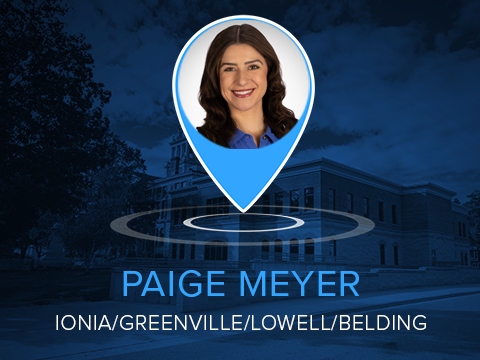MICHIGAN — After a series of strong storms left nearly one million people across the state without power last month, Michigan Attorney General Dana Nessel is making a push to hold the utility companies accountable for the outages.
The storms, which began August 10, uprooted trees and tore off roofs. An estimated 370,000 Consumer’s Energy customers lost electricity in the lower peninsula. Outages for some families reportedly lasted more than a week.
“You have businesses that can’t operate. You have families that have to live in the dark,” said Nessel in an interview with FOX17. “This is a serious situation. These companies need to have oversight.”
Nessel has raised similar concerns in the past. She says ratepayers should be able to expect their power to sustain severe weather, especially as climate change increases the frequency of storms.
“The hurricane outages due to Hurricane Ida that we saw in other states, we had about the same number of people who lost their power as lost their power in Michigan,” Nessel said. “That, I think it’s clear, was much less severe than a category four hurricane.”
Consumers Energy called the early August storms a top 15 event for the company and says crews worked 16 hour days to restore power.
According to Consumers, it replaced 1,580 poles, 2,500 cross arms, and 702 transformers as a result. The storms downed more than 7,900 wires, which required 180 miles of replacement lines. It says in comparison, during a similar storm in March 2017 which impacted 354,000 customers, Consumers had to replace 5,500 wires, 119 transformers, and nearly 700 poles.
“We have a $5.4 billion electric reliability plan, filed with the Michigan Public Service Commission in June, that is a blueprint for serving Michigan today and innovating to reduce the duration and number of power outages,” said Josh Paciorek, spokesman for Consumers Energy. “We will continue to work with the Michigan Public Service Commission on improving reliability, in an affordable way, when historic weather events hit our state.”
A 2018 study found Michigan ranks in the bottom quarter of utility reliability. Customers waited an average of 175 minutes, which was the second worst in the country, during non-major event days and 319 minutes, the eighth worst, during major event days.
More recently, Nessel launched a feedback form to collect information about the August events. According to her office, they surveyed 420 people from the West Michigan area. The survey found respondents, on average, went four to five days without electricity and nearly 50 percent suffered $100-500 in losses.
Citing similar concerns, the Michigan Public Service Commission, which oversees Consumers and DTE Energy, opened a case late last month. Members requested the companies provide them with data about their outages, preparedness, and other information by October 1.
“When we routinely get these requests from these utility companies to increase their rates, I think it’s time for us to ask some very serious questions,” Nessel said. “How exactly how are you spending that money?”
Nessel added that she’d like to see higher automatic outage credits and lower qualifying requirements along with a special fund created by the utilities for customers hit especially hard.
Consumers Energy announced automatic credits up to $25 in the days after the storm.
“We’re not saying that we don’t want them to turn a profit, but we want to make sure that we’re providing good service to their customers and right now they’re just not,” Nessel said.
Nessel’s office is still seeking feedback on people’s experience during the storms. To file, click here.











